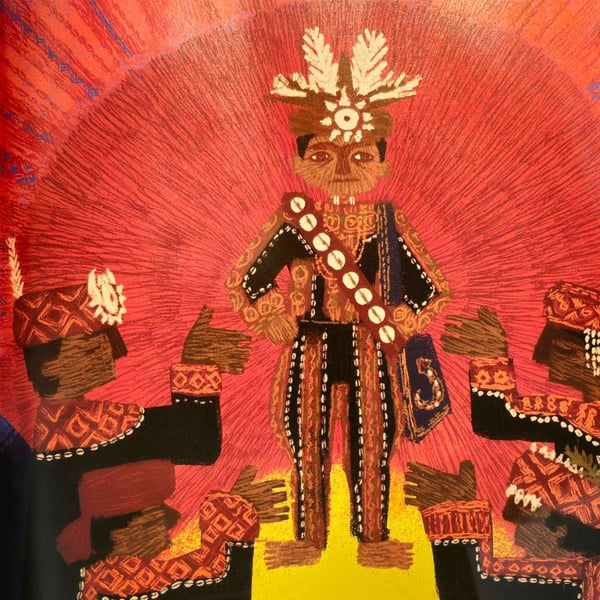
RELATED NEWS


The Power of Governance Models in Shaping Urban Public Transport Megaprojects
In this article, we're diving into the world of urban public transport megaprojects and the pivotal...
2 min read

Indigenous Resurgence and Environmental Justice in Taiwan
Of the 476 million Indigenous people around the world, nearly 70% live in Asia. Taiwan, although it...
3 min read

The Evolution of Teleworking and Hybrid Policies in the Canadian Government Post-COVID-19
The COVID-19 pandemic accelerated changes in work models across the globe, and the Government of...
2 min read
Anti-Immigrant Attitudes: The Effect of Grievances, Personal Interactions and Entrenched Beliefs
New release by Daniel Stockemer and Kofi Arhin
Published in Springer Briefs in Political Science
In our new book “Anti-Immigrant Attitudes: The Effect of Grievances, Personal Interactions and Entrenched Beliefs” we explore anti-immigrant attitudes in eight countries: Canada, The United States, Germany, Australia, Brazil, Japan, South Africa and Turkey. We do so by building a general framework that explains anti-immigrant attitudes. The framework consists of three building blocks: grievances, personal interactions and entrenched values. First, we believe that grievances are an important condition for many individuals to develop anti-immigrant attitudes; as people normally do not search for a culprit for their frustrations if they are happy with their economic and cultural situation, as well as their safety. Rather, we believe that feelings of frustration can be one root cause for the development of anti-immigrant attitudes. Such feelings emerge when people subjectively compare themselves their group to others and feel they do not have enough to sustain themselves, are getting less than they deserve or expect and less than other people have. These feeling can be felt on the group or individual levels and can pertain to wealth, culture and security among other things (Jiang & Chen, 2020). In our study, we distinguish six types of grievances: the ego-tropic cultural grievance, the socio-tropic cultural grievance, the ego-tropic economic grievance, the socio-tropic cultural grievance, the ego-tropic security grievance and the socio-tropic security grievance. We believe that the type of grievances people have should depend on the context. Hence, the magnitude of various grievances should be contingent on the country people live in.
Second, we envision that long-lasting beliefs should influence someone’s propensity to develop anti-immigrant attitudes. Such long-lasting beliefs and values can make individuals see the world around them through certain lenses while overlooking others (Schwartz, 1994). In particular, we focus on three such beliefs nationalism, social conservativism and populism or populist attitudes. Alongside their anti-immigration platform, these attitudes are building blocks of the core of radical right-wing parties. Consequently, we also believe that these entrenched beliefs should matter for the development of anti-immigrant attitudes. Yet, the effect of populist attitudes, social conservatism and nationalism might not be the same considering that the strength at which these
long-lasting beliefs are prevalent in a country might depend on the specific context.
Third, we believe that indirect or direct interactions between natives and immigrants could matter. In simple terms, we argue that if these interactions are positive, individuals are very unlikely to develop anti-immigrant attitudes. However, if these interactions are negative, then individuals should be likely to develop anti-immigrant attitudes. In our analyses, we measure contact directly, by asking individuals how they would consider their contact with individuals of a different racial and ethnic group and indirectly by asking respondents whether they think that people of a different ethnic or racial group enrich or harm their neighbourhood. We further argue that the effect of personal interactions should be universal. In other words, the more negative these interactions are the more anti-immigrant attitudes are likely to develop
Using original survey research with 1000 respondents per country, we test the salience of our theoretical expectations across eight very diverse cases (Australia, Brazil, Canada, Germany, Japan, South Africa, the USA and Turkey). As hypothesized, we find that generally all three building blocks of our theoretical model matter; that is grievances, interactions between natives and minorities, as well as entrenched beliefs are drivers of anti-immigrant attitudes. However,
while the effect of interactions between natives and minorities is universal, there are some country differences in the influence of the various grievances and our three ideological proxy variables. Our short book makes three distinct contributions. First, we make a theoretical contribution. We build a rather parsimonious model that we can adapt to context. This theoretical model portrays that grievances, long-lasting beliefs, as well as personal interactions between natives and minorities are triggers of anti-immigrant attitudes.
Second, we make an empirical contribution by comparing anti-immigrant attitudes in very diverse settings. Regardless of whether we look at South Africa, Brazil or the USA, we find that the underlying drivers of anti-immigrant sentiment are similar in these contexts. Third, we make a methodological contribution. By using our tailored questions, we can comprehensively look at the influence of grievances, personal interactions between natives and minorities and political ideologies on anti-immigrant attitudes, something that large-scale publicly available surveys such as the European Social Survey (ESS) or the World Value Survey (WVS) do not allow us to do, simply because these surveys are not conceived to measure anti-immigrant attitudes and therefore do not ask all relevant questions.
By Kofi Arhin
Kofi Arhin is a Ph.D. candidate at the University of Ottawa. He completed a Bachelor of Arts at the University of Concordia with a minor in law, justice and society (2016) and a Master of Arts in Political Science at the University of New Brunswick (2018). His main research interests include political psychology, political sociology, Right Wing Populism, party politics and identity politics. For his Master's, his research was focused on disengagement with the political system with an emphasis on youth disengagement including what would happen if the Canadian voting age were lowered to 16 years old. Since then, his research has shifted to a greater focus on far-right populist parties and political behaviour. He is currently working on his thesis entitled "How can we explain African American support for Donald Trump in the United States?".Also Read